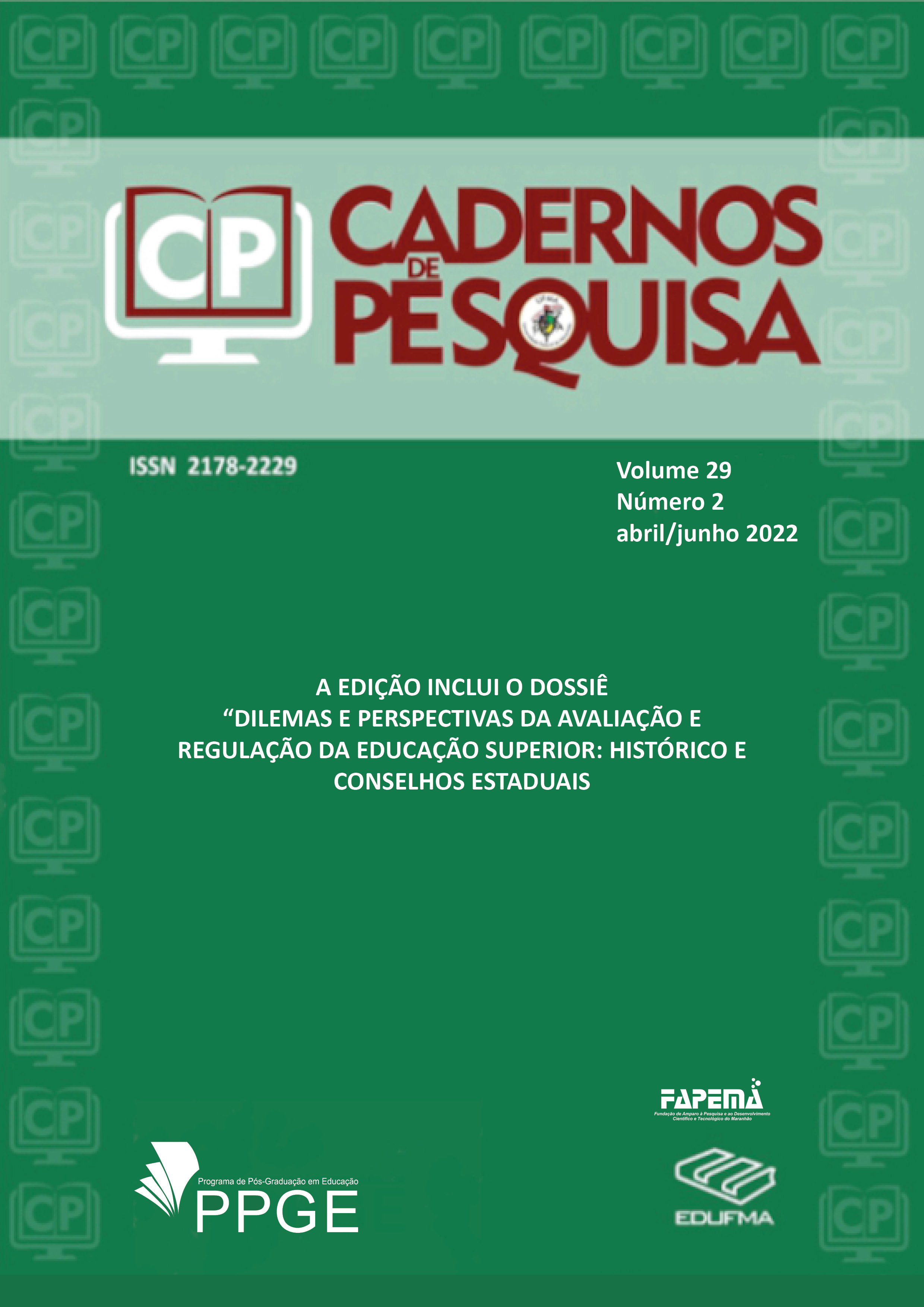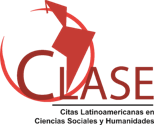AUGMENTED REALITY AS A PROSPECT OF MIXED INTERACTION BETWEEN THE READER AND THE TEXTBOOK
DOI:
https://doi.org/10.18764/2178-2229v29n2.2022.25Keywords:
pedagogical innovation, augmented reality, reader-text interaction, textbook, science teachingAbstract
If, on the one hand, nowadays the so-called traditional teaching already meets resistance that points to and encourages more active and technological models, on the other, it is necessary to think about the ed-ucational instruments that are present in schools. Therefore, it is relevant to bring to light investigations that present innovating options for the use of these instruments. This research proposed to identify the possibility of pedagogical innovation from a modern perspective of the interaction between the reader and the textbook. In order to achieve this goal, the methodological path was based on applied research, employing a bibliographic and documental survey. As a result of the research, we identified the perspective of mixed interaction between the reader and the textbook. As for its concept, it is based on making use of
one or more elements, both the internal interaction and the external interaction in a synchronous and continuous way, bringing out from this relationship new components that - a priori - would not be visible to the reader. In practice, one way identified to visualize this perspective is through the Augmented Reality technology. We conclude then, that the search for new forms of interaction between the reader and the textbook is not finished, because, from this study, we can glimpse investigations that allow other viable alternatives to perspectives present in the internal, external, and mixed interaction between the reader and the textbook.
Downloads
References
ALMEIDA, T. M. Inovação Pedagógica: uma abordagem que está mostrando como transformar a aprendizagem na educação superior, 2017. Disponível em: <https://thiagoalmeida.co/inova%C3%A7%C3%A3o-pedag%C3%B3gica-uma-abordagem-que-est%C3%A1-mostrando-como-transformar-a-aprendizagem-na-educa%C3%A7%C3%A3o-2c8543b46a71#:~:text=Sim%2C%20%C3%A9%20poss%C3%ADvel%20melhorar%20e,da%20abordagem%20da%20inova%C3%A7%C>. Acesso em: 12 jun 2020.
ALTOÉ, L. Multirio. Realidade Aumentada: para conhecer e utilizar, 2015. Disponível em: <http://www.multirio.rj.gov.br/index.php/leia/reportagens-artigos/reportagens/8385-realidade-aumentada-para-conhecer-e-utilizar>. Acesso em: 25 out. 2021.
BACICH, L.; MORAN, J. Metodologias ativas para uma educação inovadora: uma abordagem téorico-prática. Porto Alegre: Penso, 2018.
BRASIL. Anatel. Relatório Anual de Gestão, 2019. Disponível em: <https://sei.anatel.gov.br/sei/modulos/pesquisa/md_pesq_documento_consulta_externa.php?eEP-wqk1skrd8hSlk5Z3rN4EVg9uLJqrLYJw_9INcO59jtrWc1-S4nfX-SeHrqZ0yJ4y5VQfXUs0tAawmhcxMpvx_M5wnV-y55u7TZxpVC1wbPvX8lqe4T93KoIvcrei>. Acesso em: 03 mai 2020.
BRASIL. FNDE. Programa do Livro - Dados Estatísticos, 7 jun 2020. Disponível em: <https://www.fnde.gov.br/programas/programas-do-livro/pnld/dados-estatisticos>. Acesso em: 10 jun 2020.
CAIRES, A. J. Hometeka. Realidade aumentada em arquitetura: o que achamos do app Augment, 2015. Disponível em: <https://www.hometeka.com.br/pro/realidade-aumentada-em-arquitetura-o-que-achamos-do-app-augment/>. Acesso em: 25 out. 2021.
COSTA, F. CanalTech. Realidade Virtual e Aumentada | Diferenças, possibilidades e aplicações, 2019. Disponível em: <https://canaltech.com.br/rv-ra/realidade-virtual-e-aumentada-diferencas-possibilidades-e-aplicacoes-141243/>. Acesso em: 11 jun. 2020.
EVERZ, E. UEPG. Realidade Aumentada, 2016. Disponível em: <https://deinfo.uepg.br/~alunoso/2019/AEP/REALIDADE_AUMENTADA/RealidadeAumentada.html>. Acesso em: 25 out. 2021.
FANTINATO, D. E.; ZORZAL, T. A. Estudo de Enunciados de Estudantes do Ensino Médio Sobre os Temas Fotossíntese e Respiração Celular em uma Escola de Vitória/ES. TCC do Centro de Educação - Licenciatura em Ciências Biológicas da Universidade Federal do Espírito Santo. Vitória-ES, p. 35. 2015.
GIL, Â. B. D. A.; FANIZZI, S. Encontros Ciências, 4 ano: componente curricular ciências: ensino fundamental, anos iniciais. 1. ed. São Paulo: FTD, 2018.
GIL, A. C. Como elaborar projetos de pesquisa. 6. ed. São Paulo: Atlas, 2017.
HAUTSCH, O. TecMundo. Como funciona a Realidade Aumentada, 2009. Disponível em: <https://www.tecmundo.com.br/realidade-aumentada/2124-como-funciona-a-realidade-aumentada.htm>. Acesso em: 11 jun. 2020.
HICKSON, R. S. HojeEmDia. O top da tecnologia no século XXI, 2018. Disponível em: <https://www.hojeemdia.com.br/opini%C3%A3o/blogs/opini%C3%A3o-1.363900/o-top-da-tecnologia-no-s%C3%A9culo-xxi-1.634589>. Acesso em: 11 jun 2020.
HUIZINGA, J. Homo Ludens. 5. ed. São Paulo: Perspectiva, 2008. Disponível em: <http://jnsilva.ludicum.org/Huizinga_HomoLudens.pdf>. Acesso em: 11 jun 2020.
KANDAR. Android x iOS, 2018. Disponível em: <https://www.kantarworldpanel.com/global/smartphone-os-market-share/>. Acesso em: 20 janeiro 2019.
PRENSKY, M. Digital Natives Digital Immigrants. In: PRENSKY, M. On the Horizon. [S.l.]: NCB University Press, v. 9, 2001. p. 1-6. Disponível em: <https://www.marcprensky.com/writing/Prensky%20-%20Digital%20Natives,%20Digital%20Immigrants%20-%20Part1.pdf>. Acesso em: 27 out. 2020.
QUINTANILHA, L. F. Inovação pedagógica universitária mediada pelo Facebook e YouTube: uma experiência de ensino-aprendizagem direcionado à geração-Z. Educ. rev., v. 65, p. 249-264, jul./set 2017. Disponível em: <https://revistas.ufpr.br/educar/article/view/50027/33242>. Acesso em: 26 set 2021.
RAMOS, D. K.; CAMPOS, T. R. O uso de jogos digitais no ensino de Ciências Naturais e Biologia: uma revisão sistemática de literatura. Revista Electrónica de Enseñanza de las Ciencias, v. 19, n. 2, p. 450-473, maio 2020. Disponível em: <http://revistas.educacioneditora.net/index.php/REEC/article/view/305>. Acesso em: 21 set. 2021.
SANTIN, R. Sistema De Autoria Em Ambiente Colaborativo com Realidade Aumentada. Dissertação (mestrado) - Universidade Metodista de Piracicaba - Faculdade de Ciências Exatas e da Natureza. Piracicaba-SP, p. 109. 2008.
SANTOS, F. F. O professor e livro didático: implicações metodológicas na prática de ensino em geografia. 9º Encontro Internacional de formação de professores. Universidade Tiradentes, Sergipe. Aracaju: [s.n.]. 2016. p. 1-15.
SAVI, R.; ULBRICHT, V. R. Jogos Digitais Educacionais: Benefícios e Desafios. RENOTE – Revista Novas Tecnologias na Educação, V. 6 Nº 2, Dezembro, 2008_, v. 06, n. 02, p. 1-10, dez 2008. Disponível em: <https://www.seer.ufrgs.br/renote/article/viewFile/14405/8310>. Acesso em: 12 jun 2020.
SAVIANI, D. Escola e democracia. 44. ed. São Paulo: Autores Associados, 2021.
SOARES, M. H. F. B. “O lúdico em química: jogos e atividades aplicados ao ensino de química”. Tese (Doutorado) -- Universidade Federal de São Carlos. São Carlos : UFSCar, p. 203. 2004.
SOBRINHO JUNIOR, J. F.; MESQUITA, N. A. D. S. Análise da Interação Entre o Leitor e o Livro Didático: um Estudo nos Livros de Ciências dos Anos Iniciais. Revista Brasileira de Pesquisa em Educação em Ciências, Belo Horizonte, v. 20, jan./dez. 2020.
SOBRINHO JUNIOR, J. F.; MORAES, C. D. C. P. Gameficação como perspectiva didática no ensino de história: a expansão marítima portuguesa no quatrocentos. Revista Temática, v. 17, n. 5, p. 208-222, maio 2021. Acesso em: 24 ago. 2021.
SOUZA, S. C. D.; ALMEIDA, M. J. P. M. D. A fotossíntese no ensino fundamental: compreendendo as interpretações dos alunos. Ciênc. educ., Bauru-SP, v. 08, n. 01, p. 97-111, 2002. Disponível em: <http://www.scielo.br/scielo.php?script=sci_arttext&pid=S1516-73132002000100008&lng=en&nrm=iso>. Acesso em: 12 jun 2020.
TAVARES, F. G. D. O. O conceito de inovação em educação: uma revisão necessária. Educação, Santa Maria, v. 44, n. 4, p. 1-19, 2019.
VELOSO, E. F. R.; DUTRA, J. S.; NAKATA, L. E. Percepção sobre carreiras inteligentes: diferenças entre as gerações Y, X e Baby Boomers. REGE - Revista de Gestão, São Paulo, v. 23, n. 2, p. 88- 98, 2016. Acesso em: 1 out. 2021.
YASUHARA, T. R. C.; MATIELLO, M. C. A. O Jogo Didático no Ensino de Ciências, um Motivador Para Crianças Com Dificuldades de Aprendizagem. Os Desafios da Escola Pública Paranaense na Perspectiva do Professor PDE. Curitiba: [s.n.]. 2013. p. 1-17.
Downloads
Published
How to Cite
Issue
Section
License
Copyright (c) 2022 Cadernos de Pesquisa

This work is licensed under a Creative Commons Attribution 4.0 International License.
A Cadernos de Pesquisa está licenciada com a Licença Creative Commons Atribuição 4.0 Internacional.



















